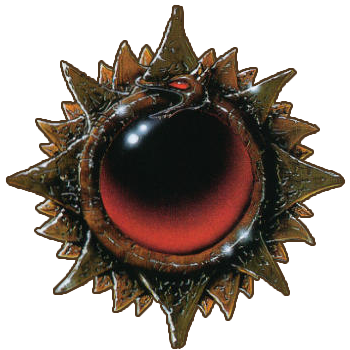- They’re a trademark of the Royal Canadian Legion (RCL), which sets the terms for how poppies can be used, and what they’re intended to signify. The RCL has even referred to itself as the “Guardians of Remembrance”
- In its 58-page Poppy Manual, the RCL glorifies war, quoting Brigadier-General A.E. Ross describing Vimy Ridge as an event that marked the “birth of a nation,” and adding, “No longer would Canada be overshadowed by the military strength of her allies. This battle had proven Canada’s ability as a formidable force in the theatre of war.” The word “peace” is mentioned 0 times throughout the entire document
- The document also states that in addition to being a symbol of remembrance, the poppy is a “symbol of unity” behind, and “collective reminiscence” of, what Canadian soldiers have done, and continue to do, in “all wars” (Not just whatever cherrypicked ones you support) It also offers a bizarre, but certainly political, view of what soldiers do, claiming that they give “their lives in the defence of freedom” (Canada fought on the side in Libya that would later reinstate slavery), and that “it is because of our War Veterans that we exist as a proud and free nation” (It is partly because of our War Veterans that thousands of children in Afghanistan are dead.)
https://readpassage.com/tv-journalists-should-be-banned-from-wearing-poppies-on-air/
The Royal Canadian Legion is mulling whether to launch a lawsuit if groups in Prince Edward Island and Ontario do not stop handing out white poppies ahead of Remembrance Day.
On the East Coast, an organization called the Island Peace Committee has been handing out white poppies, which are supposed to represent peaceful conflict resolution. The Ottawa Poppy Coalition has been distributing them in Ottawa.
But the Legion has taken issue with the campaign, calling it an insult to veterans and a possible breach of copyright.
“It’s simply a trademark issue,” said Legion spokesperson Bob Butt. “We own the trademark on the poppy.”
“It’s remembrance season, it’s not peace season,” he added. “If they want to distribute something they can distribute a dove.”
White poppies were first adopted by British widows after the First World War, and they have been used regularly there for decades. But the reappearance of the white poppy in Canada over the past few years has caused growing controversy.
The Legion has written to organizations involved with the white poppy campaign, ordering them to stop distributing them and threatening legal action if they don’t.
https://www.ctvnews.ca/legion-may-sue-over-white-poppy-campaign-1.570862
Each year, I’m drawn to write about Remembrance Day — how it has been transformed from a day that was supposed to say “Never Again” to one that uses dead soldiers as a justification to create more war. While individual motivations for wearing the poppy vary and are genuine, among the political class the poppy has become an effective tool to get us to fall in-line with Canadian imperialism. We are to mourn those lost in service to their country and not ask questions.
Do not ask why Corporal James Choi was shot to death during a training exercise in Alberta earlier this month. Do not ask what the CH-148 Cyclone helicopter was doing off the Greek coast when it crashed in late-April, killing six Canadians. Do not ask why, 11 months after he was found dead near Kingston, Ont., reservist Michal Beaman’s name has fallen out of the news. Absolutely do not ask why there is a violent, white supremacist tendency within Canada’s armed forces.
Instead, we are called to show unflinching loyalty to the poppy and flag: symbols, not of causes, but of those things that make us Canadian.
But this year the Poppy Wars seem more ridiculous than ever before. Maybe the pandemic is finally starting to get to me, or maybe my patience for populist bullshit that milks vacant patriotism for votes is wafer thin.
https://readpassage.com/the-poppy-warriors-can-fuck-right-off/
The total number of Germans and others killed by Canadians during the war is unknown. Yet, contrary to romanticized accounts of industrial slaughter in the trenches of France, Canadian soldiers—like those on all sides—committed atrocities against surrendering German troops and captured prisoners of war. According to a 1929 book written by English poet Robert Graves, “the troops that had the worst reputation for acts of violence against prisoners were the Canadians.” One Canadian soldier wrote his parents, “after losing half of my company there [Neuville-Vitasse], we rushed them and they had the nerve to throw up their hands and cry, ‘Kamerad.’ All the ‘Kamerad’ they got was a foot of cold steel thro’ them from my remaining men while I blew their brains out with my revolver without any hesitation.”
Some Canadian commanders even ordered their soldiers not to take prisoners. In The Politics of Surrender: Canadian Soldiers and the Killing of Prisoners in the Great War, official military historian Tim Cook points out that the evidence of these killings came from interviews the CBC conducted with aging veterans for a 1960s radio series. “Dozens of Canadians testified to the execution of German prisoners,” Cook said of the more than 600 interviews he conducted. Yet, he admitted, “none of these grim accounts found their way into the final 17-hour script.”
When I was 12, my brother, a history teacher, gifted me a copy of the novel Generals Die in Bed, written by WW1 vet Charles Yale Harrison about his experiences on the front. The book provides a rundown of atrocities committed by Canadian soldiers in France, and the Canadian Armed Forces have gone to great lengths to discredit it. Canadian atrocities in World War 1 are well documented regardless, and rarely spoken of.
This wasn’t unique to Canada, although Irish historian and veteran Robert Graves described Canadian soldiers as having “the worst reputation for acts of violence against prisoners.”
Only losers have to reckon with the atrocities they committed, and the winners tend to rewrite why they went to war in the first place. The invocation of the poppy as a measure of patriotism persists in removing barriers to Canadian participation in war crimes to this day.
Many liberal writers speak glowingly of Canada’s role as a safe haven for draft dodgers during Vietnam, but Canadian acts of resistance against conscription and military servitude have been all but erased from history books, save for a few nerds who are into that sort of thing.
Over 1300 Canadians fought Franco’s fascists in Spain under the banner of the Mackenzie-Papineau Battalion. But Canada as a nation did not participate, and during the war passed an act to prevent Canadian enlistment in foreign conflict.
Neither the Mac-Paps or heroic war resisters are commemorated on Remembrance Day.
https://www.theprogressreport.ca/the_poppy_is_over_remembrance_day_is_not
So obviously fuck Canada, its military, the corporate media, its main political parties, and the nebulous war symbol of the poppy.
Thanks comrade!


